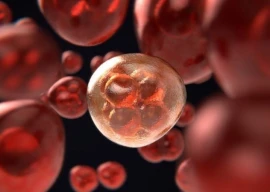
Bioengineers have developed a novel system inspired by the lotus leaf to study cancer cell clusters, offering new insights into tumour behaviour. The system, designed by researchers at Rice University, utilises a zinc oxide-based surface that mimics the water-repellent and self-cleaning properties of a lotus leaf, creating a platform for high-throughput generation of 3D tumour models.
“The study of metastasis—the leading cause of cancer deaths—poses a particular challenge in part due to the difficulty of developing accurate, high-throughput models,” said William Grover, associate professor of bioengineering at UC Riverside. “We hope this tool will unlock new knowledge about this problematic stage of the disease and help us identify ways to intervene in order to stop or prevent it from happening.”
The superhydrophobic array device (SHArD) developed by the team provides a tunable, physiologically relevant model for studying cancer progression, including metastasis, the critical stage when cancer cells spread through the bloodstream.
This cutting-edge technology could transform cancer research, enabling scientists to better understand and combat the spread of cancer cells.
4o



1724302092-0/Taylor-Swift-(3)1724302092-0-165x106.webp)



1724535372-1/IMG_6094-(1)1724535372-1-270x192.webp)


1719640649-0/BeFunky-collage-(77)1719640649-0-270x192.webp)





1724498890-0/Untitled-design-(2)1724498890-0-270x192.webp)


1724394882-0/Thumbnail-Template-(2)1724394882-0-270x192.webp)






COMMENTS
Comments are moderated and generally will be posted if they are on-topic and not abusive.
For more information, please see our Comments FAQ